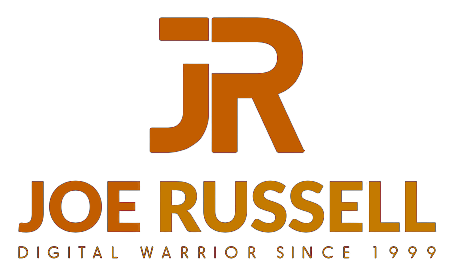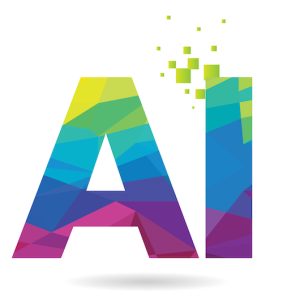 You may have heard that AI (Artificial Intelligence) is going to be the future of SEO (search engine optimization). But in truth, the future may already be here.
You may have heard that AI (Artificial Intelligence) is going to be the future of SEO (search engine optimization). But in truth, the future may already be here.
By integrating AI with machine learning (ML) these new SEO tools can provide in-depth insights into keyword usage, search trends, and user behavior. It can also automate complex SEO tasks with far less effort.
AI powered tools can help speed up the process of keyword, competitor, and search intent research. Along with that, It can help you in crafting more customized optimization strategies and discovering new opportunities.
AI Algorithms and User Search
AI powered search algorithms have the potential to drastically change the way we search the internet.
Over the years, Google has created advanced algorithms that use natural language processing (NLP) to determine relevancy to a users search. NLP is a branch of AI, which allows computers to process and analyze natural language data such as written text and speech.
Two such algorithms are RankBrain and BERT
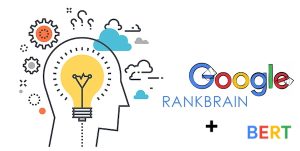
RankBrain is a machine learning based algorithm that Google uses to help process and understand search queries. Especially ones that are unique or haven’t been seen before. It can also make educated guesses about what new queries mean, based on its understanding of similar previously seen queries.
BERT, is a technique for natural language processing pre-training. It’s designed to better understand the context of words in a sentence, leading to a more accurate understanding of the query.
It can interpret the nuances and context of words in searches. It can then match those queries with more relevant results, even for queries that it hasn’t encountered before.
This means that not only will users get more relevant search results, but they will also get results that they may not have found otherwise.
As AI becomes more advanced and capable of understanding content and context on a deeper level, the search engine landscape will definitely evolve. The goal of these changes is always to provide users with the most relevant and high-quality content.
AI’s Role In Predictive SEO
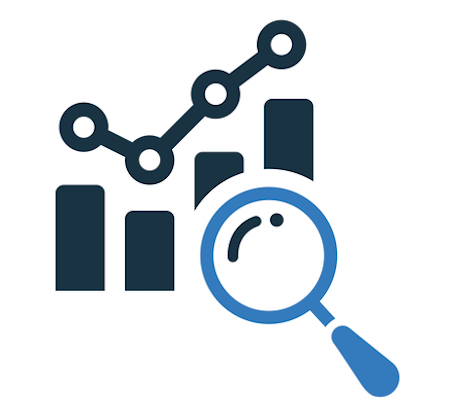
Did you know that artificial intelligence can help you predict search patterns and user behavior to provide valuable insight to guide your marketing strategies?
Using AI, you can analyze search queries, predict user intent, and identify relevant keywords to use in your content. AI can also optimize content by analyzing user behavior and search patterns to identify what type of content is most effective.
The benefits of using AI for predictive SEO are numerous.
It saves time, resources and can provide a level of accuracy that human writers alone can’t achieve. AI is particularly useful in identifying long-tail keywords that often have less search volume but can have high converting potential.
AI can help you stay ahead of the competition by predicting upcoming trends and adjusting marketing strategies accordingly. You can also track performance of your content to make better data-driven decisions.
It’s predictive capabilities allows it to forecast future user behavior based on past data. It can predict what kind of content a user might be interested in, the products they’re likely to purchase, or the pages they’re likely to visit.
AI SEO Does Have Some Drawbacks
AI SEO is showing tremendous promise in many areas but there are still a few things you should be aware of. For example, content created using AI may sometimes lack the nuances and flair of human crafted content.
Another significant challenge posed by AI tools in SEO is ethical considerations. As AI systems become more sophisticated, they may be used to manipulate search results or create content that favors certain interests or perspectives.
There’s also a concern of AI content being used to trick users into visiting sites that they otherwise wouldn’t. Because of these caveats, it’s important to approach AI SEO with caution. You need to be aware of the limitations of the technology and work to overcome the challenges.
It’s crucial that you consider the unknown unknowns and ethical implications of using AI powered SEO tools. While AI can be a powerful tool in SEO, it needs to be used wisely and with caution.
Can Google Identify AI Content?
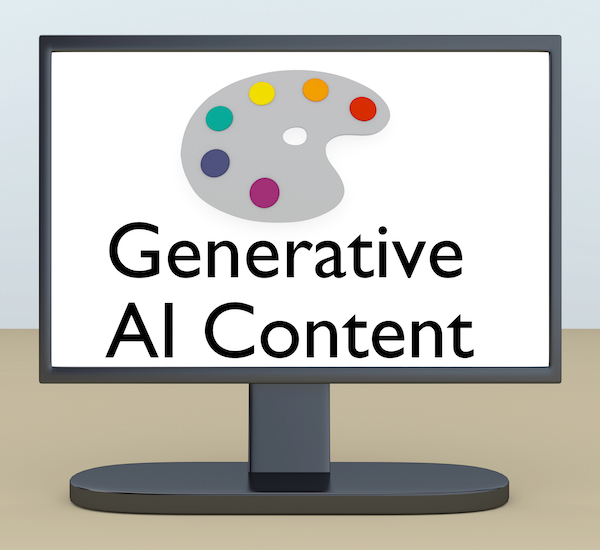
Google’s AI and Machine Learning algorithms can already tell the difference between human created content and AI generated content. These algorithms identify unique word patterns that set the two apart.
Content generated by AI content tools also use algorithms and machine learning techniques. They can help you to produce a large volume of human readable content quickly and efficiently.
However, as mentioned, search engines are getting smarter and can detect not only word patterns but also grammar, and sentence structure that indicate AI is behind the content. One dead give away is the use of rare or unusual words.
Human writers tend to vary vocabulary and use a wider range of words. AI content can be repetitive, using the same words over and over. Its lack of depth and context at times can also be a red flag.
As search engines continue to evolve, detecting AI created content will become even easier. Improving your SEO content strategy with AI can still be a smart move as long as you’re smart with its use. AI content tools can be a massive help but don’t let it them do all the work for you.
How to Make Your AI Content Completely Undetectable By Google
If you are using or planning to use AI to generate your content there is one tool that is a ‘must have’, it’s the only tool of its kind that…
– Revamps all of your AI content.
– Elevates quality to doctorate level, infusing it with a human feel.
– Doubles content word count for better rankings without losing quality.
– Makes your content 100% undetectable to all AI Detectors.
You can grab ByPaiss and fly your AI content under the radar here
Impact of AI on SEO Strategy
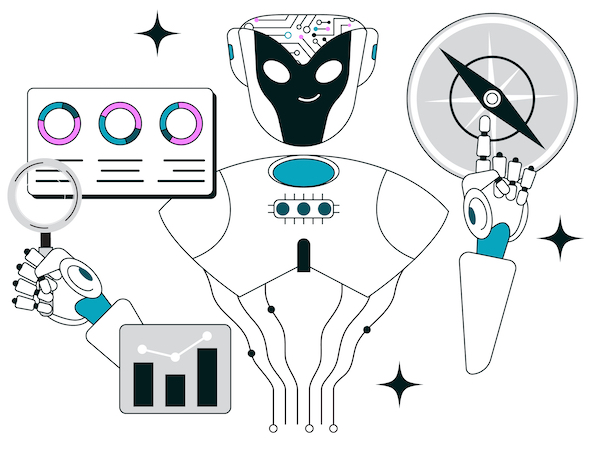
AI is already beginning to redefine the SEO game with its ability to enhance website and content optimization.
Performing keyword research, particularly for unique content or diverse demographics, can sometimes be difficult. This is where AI can help. It can automate the process, pinpointing accurate keywords and trending search terms for your target audience.
AI can also identify overlooked niches, keywords, and topics. It can give you an all encompassing view of your competitors and the potential for SEO success.
Besides that, AI can also improve search intent research, recognizing patterns in user search queries. This enables more accurate targeting of long tail keywords and sets the stage for more effective SEO strategies.
But AI’s impact on SEO strategy doesn’t stop there. Let’s explore how AI can also enhance user experience (UX)
AI Powered UX Enhancements for Better SEO
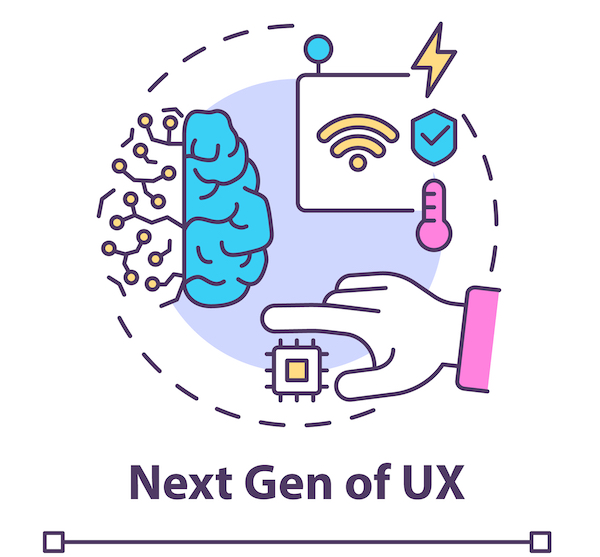
You may already know that UX or User Experience is a critical ranking factor for Google. AI excels at understanding user behavior, gauging user satisfaction, and predicting future actions.
By analyzing click patterns, bounce rates, and user engagement, AI can suggest improvements to website design, navigation, and content that will enhance the user experience. In turn, these improvements can lead to better rankings.
Website Design and Navigation
AI can detect design elements and navigational flaws that can impact user experience. For instance, if high bounce rates or if users struggle to find information, AI might suggest ways for you to resolve this.
Personalization
Based on user behavior, preferences, and predicted interests, AI can personalize the user experience by showing users content and offers they’re most likely to be interested in.
This level of personalization can significantly enhance user engagement and satisfaction, leading to longer session durations, lower bounce rates, and higher SEO rankings.
Content Optimization
AI can be extremely helpful in optimizing website content for a better user experience. By analyzing what type of content users engage with the most, It can recommend content strategies that will best resonate with your audience.
Along with that it, AI can ensure content readability, proper keyword usage, and semantic richness, all of which contribute to a better user experience and improved rankings.
Adapting Your SEO Strategy
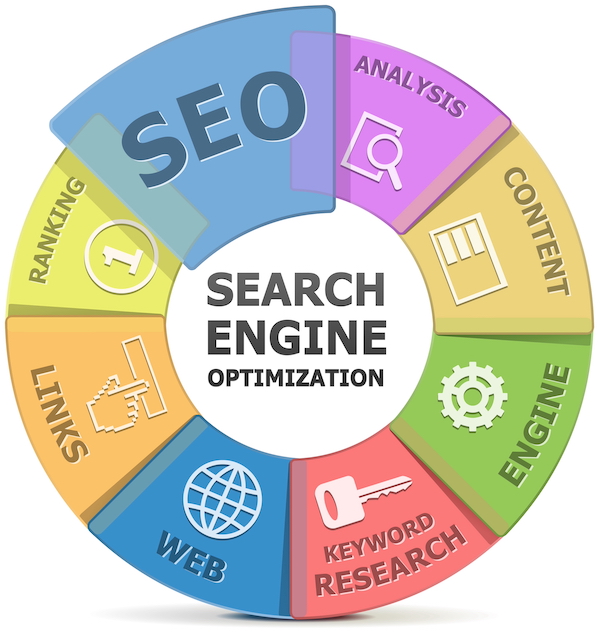
Content Quality: As AI becomes more sophisticated, it becomes better at understanding and evaluating the quality of content. High-quality, original content that provides value to users will be even more important.
User Experience: AI algorithms can analyze how users interact with websites. As a result, factors like site speed, mobile responsiveness, and user-friendly navigation will likely play a larger role in rankings.
Semantic Search: With AI, search engines are getting better at understanding the context and intent of queries. Optimizing for keywords will still be important, but understanding and matching the intent of the user will be key.
Personalization: As AI enables more personalized search results, understanding your audience and their needs will become even more crucial. This can influence everything from content creation to site design.
AI and SEO: The Current State and Where Its Heading

AI’s influence on SEO is unquestionable. Big brands are harnessing AI’s power, leveraging its insights to gain a competitive edge. With AI, they can gather data-backed insights, informing their content strategies and aligning seamlessly with search engine algorithms.
Meanwhile, the SEO landscape continues to evolve. AI isn’t just an upcoming trend; it’s already here, reshaping SEO as we know it. As technology advances, AI tools are becoming more accessible and affordable.
This shift empowers not only large corporations but also small businesses, micro business and entrepreneurs to level the the playing field of digital marketing.
As we look to the future, it’s clear that AI will continue to play an integral role in SEO. With advancements in natural language processing and machine learning, we can expect even more sophisticated and precise SEO tools.
From generating unique content to optimizing site structure and navigation, AI holds immense potential. As such, the future of SEO strategy will certainly be tied to the evolution of AI technology.
Understanding and integrating AI into SEO strategies is no longer optional. It’s a necessity for anyone looking to stay ahead.
